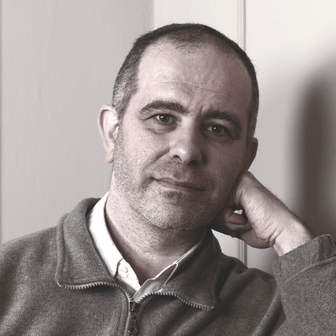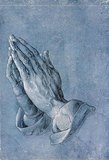Martin Luther King

Martin Luther King, the world-famous icon of the
Negro non-violent civil rights movement and the fight for equal
social rights for the minorities, lived in a place and period in
which segregation was commonplace on buses, in bars, theatres, and
even in churches, according to the colour of the skin - when it was
a dream that "one day little black boys and girls would be able to
join hands with little a white boys and girls as sisters and
brothers".
The non-violent choice of our author, undivided from the longing
for the justice of an entire people, is deeply embedded in a
personal and social reality; it does not stem from within a safe
and detached oasis, but is rooted in a state of injustice
experienced on his own skin from childhood, and consciously shared
despite his wealthy origins: starting from when he was very young,
unloading vegetables at the general markets in order to become
better acquainted with the situation of the poor, until he became a
pastor, dedicating his brief life (41 years) as leader of the
non-violent protest of the African Americans.
Martin Luther King was born on January 15th 1929 in Atlanta, the
capital of Georgia. His father was a Baptist pastor, as he himself
would later become, and his mother a teacher. In 1947 he was
already ordained pastor and moved to Chester in Pennsylvania a year
later where he studied theology. He then became familiar with
Ghandi, who became one of his most important points of
reference.
In 1953 he married Coretta Scott, who was to become his precious
support during the struggles and difficulties, and moved to
Montgomery, where, at the early age of 25, he took the lead of a
parish. It was the famous episode of Rose Parks, the African
American woman who refused to give up her seat on the bus to a
white person that triggered the non-violent resistance commitment
of King who was suddenly involved in a movement which met not only
with the favour of the local churches, but also of the media and
the young beat generation.
The reaction to the arrest of the woman was the heavy boycotting of
the public means of transport which lasted 382 days, until - amid
feelings of joy and surprise - the segregation on public transport
in Alabama was declared unconstitutional. The first contrasts arose
contemporaneously: on the part of the Ku Klux Clan, a racist
organisation, the hooded members of which carried out punitive
hunts on African American families and on their white American
friends, and by the political world.
1957 marked the founding of the "Southern Christian Leadership
Conference", a movement which fought for the rights of the
minorities and which was based on the Ghandi policy of
non-violence.
Another charismatic defender of the rights of African Americans was
appearing on the scene in Harlem, Malcolm X, who followed
altogether different methods of social demands. After having been
to India to become more closely acquainted with the figure of
Ghandi, the Baptist pastor organised a series of sit-ins in Atlanta
(sitting in bars and restaurants until being served) in places for
'Whites Only'. He was once again arrested, but this time John
Kennedy, candidate for the presidency - then to become his dear
friend - personally had him released from jail.
Another aim of the protest became the stronghold of racist America,
Birmingham, in 1963, but the police adopted the method of
repression, and the leader of the movement, once again imprisoned
and isolated, wrote his famous Open Letter from Birmingham Jail 1,
criticising the indifference of the ecclesiastical position. Once
released, he restarted the protest in which even many students took
part; although the reaction of the police was fierce (see photos in
which men and women are being attacked by police dogs), an
agreement was reached in order that segregation in public places be
ceased.
The first threats were arriving, together with the first attacks
and arrests, but Martin Luther King stood firm, and on August 28th
1963, an impressive march for freedom was organised on Washington,
numbering 250,000 participants (of whom 85,000 were whites!),
during which he pronounces his most famous speech, I have a dream.
In the meanwhile, on November 22nd 1963, President kennedy, his
upholder behind the line, was assassinated in Dallas, to the great
sorrow of our author. Nevertheless, the year that followed was a
year of great satisfaction for King: the Civil Rights Bill was
approved, establishing the elimination of the civil discrimination
of African Americans, and their gradual entry into the political
world. He subsequently met Pope Paul VI in Rome and received the
Nobel Peace Prize in Oslo.
In 1965 he moved to Selma, a city famous for its racism, where he
organises another march on the Courthouse of Montgomery which,
however, was to cause the assassination of a young Italo-American
woman by the Ku Klux Clan. After a stop in Los Angeles to bring
back peace and order among his people, and a transfer to Chicago,
Martin visited James Meredith in Memphis, Tennesee, who was first
Black American student to enrol at the university and that had been
wounded; it was here that the Coordination of the non-violent
African American students was founded - that had taken the name
Black Power - finding therein extremist fringes with which he
entered in contrast. At the beginning of 1967, he publicly sided
against the Vietnam War, thus entering in conflict directly with
the white House. In April 1968, Luther King went to Memphis to take
part in a march in favour of the city's garbage collectors (blacks
and whites) that were on strike. It was there that, while speaking
with his collaborators on the hotel veranda, he was gunned down and
assassinated by a man whose identity remains a mystery to this very
day. The death of the black leader of non-violence caused rebellion
and great commotion everywhere, but was celebrated, according to
his will, in a simple and poor manner, with a wooden coffin
transported by two mules.

Ciao,
mi chiamo Stefano.
Piemonte Sacro è la mia passione dal 2001.
AIUTA il progetto Piemonte Sacro a crescere
DONA SOLO 2 euro! Te ne sarò GRATO .




